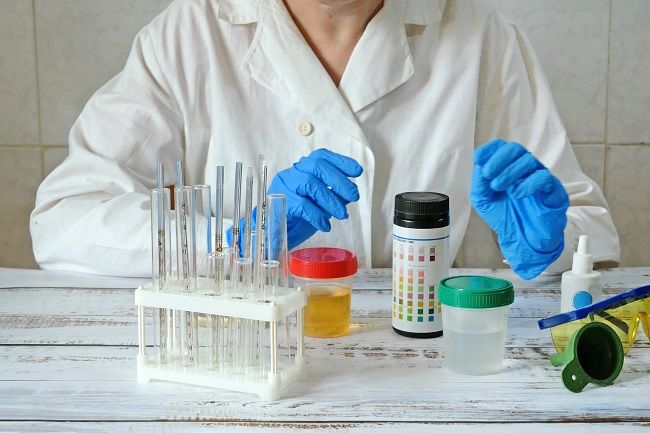Nitrates in Urine

Chemicals called nitrates are frequently present in food, water, and soil. They can also be expelled in urine and are naturally present in the human body. Nitrates are typically not dangerous in tiny doses, but large levels in urine can point to a possible health issue. In this article, we will look at what nitrates in urine are, what they can tell us about a person's health, and how to reduce them if necessary.
Table of Contents
Nitrates in urine: What are they?
Nitrates are a result of the body's metabolism of nitrogen-containing substances such amino acids and are found in urine. Many biological activities, such as the synthesis of DNA and proteins, depend on nitrogen. Excess nitrogen can, however, also be broken down into nitrates and other nitrogenous substances that can be eliminated in the urine.
Although some nitrates in the urine are acceptable, high quantities could be a sign of a health issue. This is due to the possibility of nitrates being changed into nitrites, which might then result in nitrosamines. Since they are known to cause cancer, nitrosamines may make some types of cancer more likely.
What Causes High Nitrate Levels in Urine?
High nitrate levels in urine can result from a variety of circumstances. One of the most typical causes is a diet rich in nitrates. Leafy green vegetables like spinach and arugula as well as beets, carrots, and other root vegetables are examples of foods high in nitrate. Nitrate levels are also high in processed meats like bacon and deli meats.
Dehydration and urinary tract infections are two other reasons that can result in elevated urine nitrate concentrations. Dehydration causes urine to become more concentrated, which can raise nitrate levels. Since bacteria in the urine can change nitrates into nitrites, urinary tract infections can also result in an increase in nitrate levels.
What Do High Nitrate Levels in Urine Mean?
A potential health issue may be indicated by high urine nitrate levels. Urinary tract infections are one of the most typical causes of elevated nitrate levels in urine. Increases in the amount of bacteria in the urine that can turn nitrates into nitrites can result from infections of the bladder or kidneys.
Nitrate concentrations above normal in the urine can also indicate dehydration. Dehydration causes urine to become more concentrated, which can raise nitrate levels. Dehydration can cause a variety of medical issues, such as kidney damage and heat exhaustion, if it is not treated.
High nitrate levels in the urine can point to more severe health issues, like kidney or liver issues. Nitrate levels in urine may rise as a result of several situations increasing the body's nitrate production.
How to Reduce Urine Nitrates
There are numerous actions you can take to lower your nitrate levels if it has been determined that they are too high in your urine. Making dietary modifications is one of the best strategies to lose weight. Nitrate levels in urine can be decreased by avoiding foods high in nitrates including processed meats and leafy green vegetables.
The amount of nitrates in your urine can be decreased by drinking more water. When you drink enough water, your urine becomes less concentrated, which can aid in reducing the concentration of nitrates by dilution.
Your physician might recommend antibiotics to treat your urinary tract infection. This may assist in lowering the amount of bacteria in your urine, which in turn may lessen the amount of nitrates in your urine.
Get an Urinalysis Test without a doctor's visit at Discounted Labs at a very low cost.





